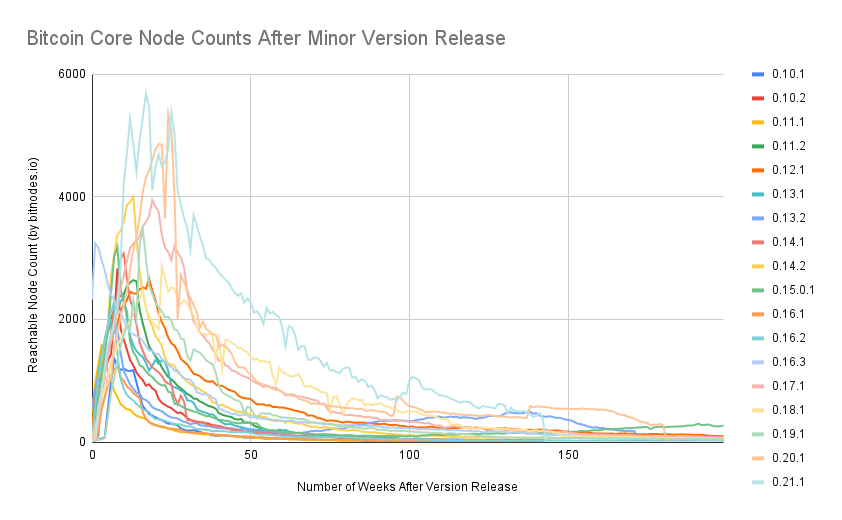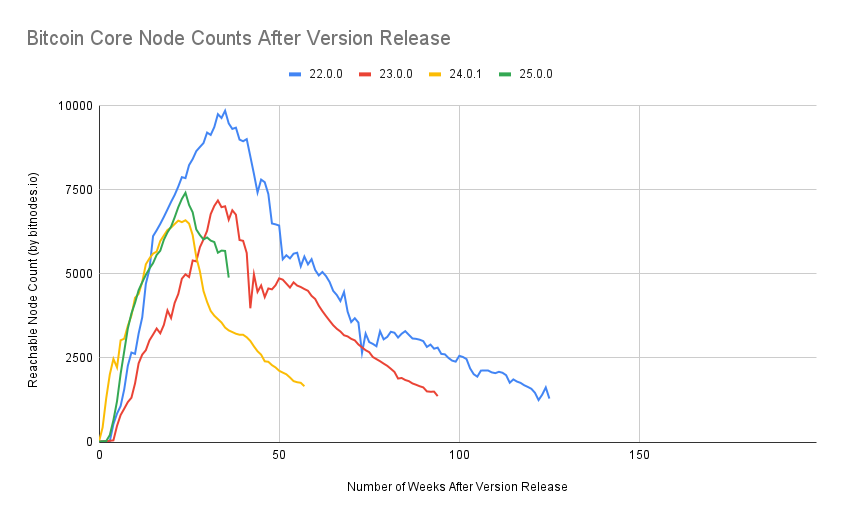When Do Bitcoin Node Operators Upgrade?
"Auto-updates would create a single point of failure that could cause a malicious update to quickly spread to a supermajority of nodes on the network. As such, manual action must be taken by node operators to keep their node software up to date."

- "In 2015, 2016, and 2017 most of these node operators are updating their software twice a year, with each new major release. In 2018 more node operators are slowing down and only updating their node annually."

- "When looking at the lifecycle of nodes that are updated to minor releases, unsurprisingly it looks like their node operators are updating even more frequently; often more than every 6 months. This makes sense, as minor releases tend to be published between major releases."

- "I suspect that the increase in lag time for node operators to update is the same reason of why we see node counts higher in recent years: the rise in user friendly plug and play node hardware and software. That is: there are a higher number of less technical node operators now and they aren't quite as enthusiastic about updating the software on their node machines."
"Before July 2018 it generally took 1 year for 95% of node operators to update their software. But after 2018 it doubled to 2 years. And it's entirely possible that we're now in an era of it taking 3 years for 95% of node operators to update!"
- "While we shouldn't change nodes to auto-update their software since it would greatly weaken Bitcoin's security model, I do suspect we can improve the awareness of node operators."
- "It's not considered safe to run Bitcoin Core releases that are more than 18 months old, as they may have unpatched vulnerabilities. If a significant number of nodes are running very old, unpatched software, it could pose a systemic risk to the network."




